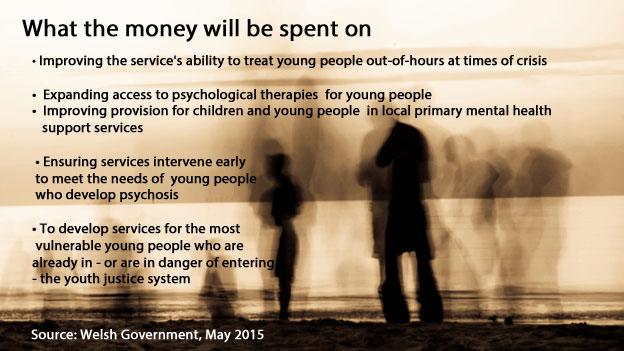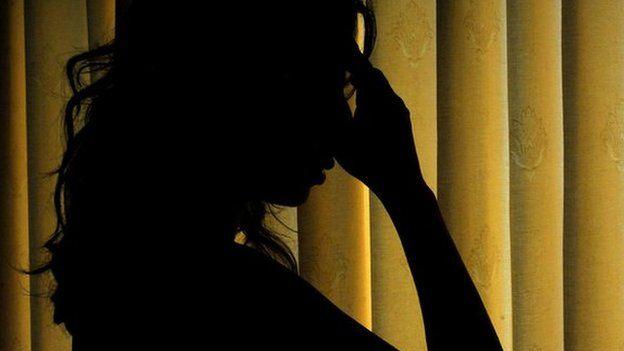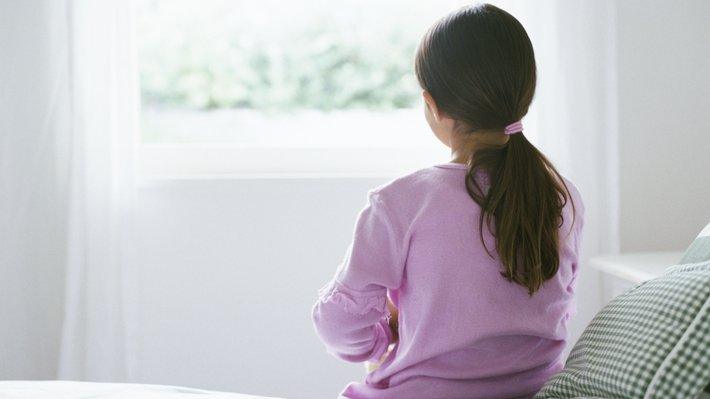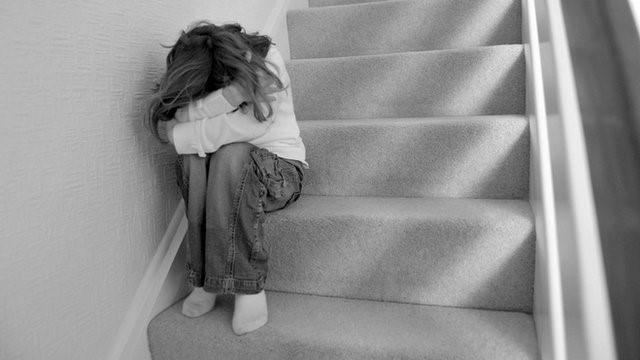£7.6m a year extra for child mental health budget in Wales
- Published
Health Minister Mark Drakeford said early treatment was key to improving mental health
An extra £7.6m a year will be invested to improve mental health services for children and young people in Wales.
Health Minister Mark Drakeford said the money would be used to improve areas of concern, including out-of-hours help and access to psychological treatment.
Campaigners have raised concern that the budget for child mental health services has not been protected.
The money is an 18% rise on last year's £42.8m Child and Adolescent Mental Health Services (CAMHS) budget.
Last year, Mr Drakeford announced a review of the service after childcare experts told BBC Wales it was in crisis.
The number of CAMHS referrals almost doubled between April 2010 and July 2014, from 1,204 to 2,342.
During that time, more young people (2,410) waited for treatment than the elderly (634) and other adults (1,291).

Mair Elliott, from Haverfordwest, Pembrokeshire, has been receiving help from CAMHS since she was 14


Mr Drakeford said that while money alone was not the answer for all challenges facing the NHS, the changes the Welsh government was seeking to make were the "most significant for many years".
Mair Elliott, 18, from Haverfordwest, Pembrokeshire, welcomed the extra money.
She has autism and has suffered with depression, anxiety and anorexia and has received help from her local CAMHS team for the past four years.
"It's very good news," she said. "The staff really try to do their best to provide the service you need but they are under-funded and under-resourced."
The Royal College of Paediatrics and Child Health (RCPCH), which represents doctors in child health, said demand for the service had long been outstripping supply.
Dr Mair Parry, officer for Wales, said this often meant children faced long waiting times, had to travel long distances for support or some missed out on care altogether, which she said "can be disastrous."
She said expanding access to psychological therapies and focussing on early intervention would see much-needed help given to young people in urgent need.
But Welsh Liberal Democrat leader Kirsty Williams has expressed reservations.
"It's all very well putting the resources in, but unless they're put in in a way that is really going to make a difference, is going to be effective, then we won't get value for money and the people who really need the money won't get the help they need in a timely fashion," she said.
- Published7 May 2015

- Published10 March 2014

- Published28 February 2014
